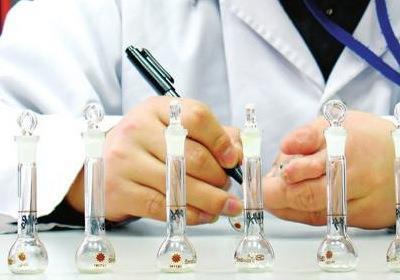Farming and research organisations are teaming up to better understand the research and innovation priorities for UK growers

This autumn, a series of workshops hosted by the National Farmers Union (NFU), the Agriculture and Horticulture Development Board (AHDB), Linking Environment and Farming (LEAF), and Innovative Farmers, among others, will ask farmers what research would be most useful to their business, now and in the long term. They will hear views from all major agricultural sectors, across a wide diversity of farming systems.
Each of the groups hosting the workshops will send out invitations through their own networks, but any farmers or growers who would like to participate can visit the website of the Centre for Effective Innovation in Agriculture (CEIA), which is coordinating the process, for a full list of workshops and to get in touch with the organisers directly.
Professor Tom MacMillan, Elizabeth Creak Chair in Rural Policy & Strategy at the Royal Agricultural University (RAU), and one of the organisers, said: “The need for innovation in agriculture has never been more urgent.
“Our industry is grappling with rapid changes in policy and trade, heightened volatility, and climate and nature crises. Research is vital to help understand these challenges and find ways to address them. As researchers, there is certainly more we can do to make sure our work is truly relevant on the ground.”
The workshops are supported by organisations including Innovate UK and the Agricultural Universities Council (AUC), which brings together 16 UK universities that carry out research in agriculture.
In May, the AUC published its joint research strategy setting out how the universities would work together to help address challenges facing farming. Top of the list was working more with farmers and others at the sharp end, to understand their priorities and shape the research agenda.
Dr Helen Ferrier, chief science advisor for the NFU, is part of the commissioning group for this work and will be hosting workshops. She said “It is so important that the voices of farmers and growers are heard when research strategies are developed. These are the people who will be turning scientific knowledge into practice in their businesses and they therefore play a key role in enabling Government funding to show a return on investment.
“The positive impact of innovation in our sector can be extremely significant if the research and development and knowledge exchange system works well. Priorities do shift over time and I’m really pleased that the Feeding the Future work to identify research needs, which was first published in 2013, is being updated again now, hearing from a wide range of farming sectors and systems.”
Rebecca Swinn, manager of Innovative Farmers which is running one of the workshops, added: “Farmers are used to experimenting and adapting to changes in climate, farm payments and supply chain demands. No one knows their land better so I’m pleased to see researchers valuing their knowledge by working together to set research priorities.
“This collaborative approach can benefit every stage of the research process, giving researchers the opportunity to ground truth their work, make an impact and add some scientific rigour to on-farm trials.”
Dr Katrina Hayter, challenge director - transforming food production challenge at Innovate UK, said: “Innovate UK recognises the importance of the Agrifood sector, understanding its vital role in both the UK economy and environmental sustainability. To maintain and enhance this role, we need to continually reassess our strategies and identify the sector’s key research and innovation priorities.
“We are pleased to provide our support to this multidisciplinary initiative and extend our thanks to all those who contributed to the success of the workshops and the creation of the final report.”
Clare Mike, director of technical and business development at LEAF, said: “At LEAF we are working with some of the most forward-thinking and innovative farmers across the world, many of whom are delivering pioneering research and climate-positive farming practices through Integrated Farm Management.
“With climate change at the forefront of the agenda, it is critical that we continue to drive forward the ‘science into practice’ approach and demonstrate the importance of applying research directly onto farm- to build economic viability, business resilience, and a more sustainable food and farming system.”
Professor Simon Mortimer, University of Reading and AUC chair, concluded: “The AUC is pleased to be working alongside farmers, farming organisations, industry bodies, and research institutes on this important review.
“Only through sharing our combined knowledge and experience can we produce a comprehensive agenda for action. The findings of this work will be influential in shaping the future research strategies of AUC members and allow us to work with partners to deliver impactful research.”
The findings from the workshops will help shape research and innovation priorities for the whole industry. The AUC will use the outcomes, in the context of global goals for sustainable land use and food systems, to develop a shared list of priorities for researchers to focus their work on.
The Agricultural Universities Council (AUC) is a partnership of 16 UK universities involved in teaching and research on agriculture. The members of the AUC are Aberystwyth University, Cranfield University, Harper Adams University, Hartpury University, Newcastle University, Queens University Belfast, Royal Agricultural University, SRUC, University of Edinburgh, University of Hertfordshire, University of Leeds, University of Lincoln, University of Nottingham, University of Reading, University of Warwick, and Writtle University College. The AUC is provided with secretariat and coordination by The Centre for Effective Innovation in Agriculture (CEIA). The CEIA is funded by The Elizabeth Creak Charitable Trust.
The Centre for Effective Innovation in Agriculture (CEIA) launched in April 2021. It is a partnership of agricultural universities – Royal Agricultural University, University of Reading, University of Warwick, Newcastle University, and Harper Adams University – founded with five years’ funding from the Elizabeth Creak Charitable Trust. It is a strategic initiative working with research institutes, agricultural organisations, funders and policy makers to strengthen the impact and benefit of agricultural research and innovation at scale.



